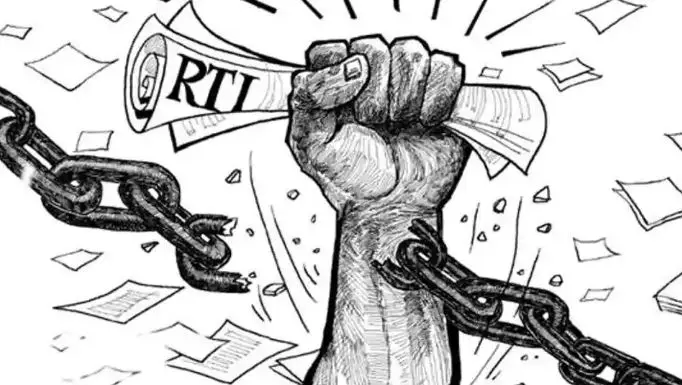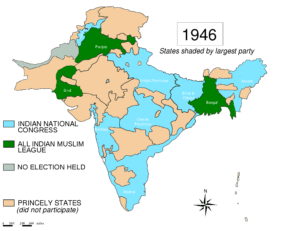Table of Contents
Introduction to Right to Information (RTI) Act, 2005 | UPSC – IAS
RTI stands for Right To Information and has been given the status of a fundamental right under Article 19(1) of the Constitution Right to Information (RTI) Act 2005 mandates timely response to citizen requests for government information by various Public Authorities under the government of India as well as the State Governments. The law imposes a penalty for wilful default by government officials. Citizens can ask for anything that the government can disclose to Parliament.
The basic object of the Right to Information Act is to:-
- Empower the citizens,
- Promote transparency and accountability in the working of the Government,
- Contain corruption, and make our democracy work for the people in real sense.
It goes without saying that an informed citizen is better equipped to keep necessary vigil on the instruments of governance and make the government more accountable to the governed. The Act is a big step towards making the citizens informed about the activities of the Government.
- BUT, Information that can prejudicially affect the sovereignty and integrity of India, like:– internal security, relations with foreign countries, intellectual property rights, breach of parliamentary privilege and impedes investigations cannot be shared with the public Cabinet papers are exempt until a decision has been implemented. However, discussions within the Cabinet can never be disclosed.
Significant Provisions under Right to Information Act, 2005 | UPSC – IAS
- Section 2(h): Public authorities means all authorities and bodies under the Constitution or any other law, and inter alia includes all authorities under the Central, state governments and local bodies. The civil societies substantially funded, directly or indirectly, by the public funds also fall within the ambit.
- Section 4 1(b): Maintain and proactively disclose information.
- Section 6: Prescribes simple procedure for securing information.
- Section 7: Fixes time limit for providing information(s) by PIOs.
- Section 8: Only minimum information exempted from disclosure.
- Section 19: Two tier mechanism for appeal.
- Section 20: Provides penalties in case of failure to provide information on time, incorrect, incomplete or misleading or distorted information.
- Section 23: Lower courts are barred from entertaining suits or applications. However, the writ jurisdiction of the Supreme Court and high courts under Articles 32 and 225 of the Constitution remains unaffected.
Achievements of Right to Information (RTI) Act, 2005 | UPSC – IAS
- The answer keys of civil service examination and IIT-JEE are now available on the websites of the Union Public Service Commission and IIT-JEE respectively, helping students to find out their scores even before the official announcement.
- Assets and wealth declaration of all public servants – PM and his entire council of ministers, civil servants — are now in the public domain.
Criticism of Right to Information (RTI) Act, 2005 | UPSC – IAS
- Poor record-keeping practices within the bureaucracy results in missing files.
- Lack of infrastructure and staff for running Information Commissions.
- Dilution of supplementary laws such as the one for whistleblower protection.
- Lack of Proactive declaration of information by the government as stipulated in RTI law increase applications.
- Need to put all RTI replies on government websites to curb unnecessary applications.
- Increasing frivolous RTI applications. (Public authorities have also complained some applicants of using RTI for blackmail).
How does Right to Information (RTI) Act work? | UPSC – IAS
- Every citizen has freedom of speech and expression. Therefore, Citizens have a right to know how the governments, meant to serve them, are functioning.
- The Right to Information Act (RTI), 2015 is an Act of the Parliament of India – to provide for setting out the practical regime of right to information for citizens. ”Simply put, it allows citizens of the country to request information from any public authority about its work, actions, etc”
Significance of Right to Information (RTI) Act | UPSC – IAS
- Improved citizen-government partnership
- Greater transparency which gives citizens right to access information regarding rules, regulation, plans & expenditure of govt.
- Greater accountability in the working of the Government.
- To check corruption.
- To make our democracy work for the people in real sense.
Bringing Political Parties under RTI (An Analysis) | UPSC – IAS
Recently the Supreme Court has asked the six national parties why they should not be brought under the RTI.
Background Information:
- The Central Information Commission tried to bring political parties under the ambit of the RTI, the previous UPA government tried to amend the Act to nullify the order.
- Political parties have neither challenged the CIC’s order nor complied with it. Now the CIC reiterated its order as final and binding and admitted it was unable to act against the parties that had not replied to its notices and had ignored its order.
- It was replied that the CIC has made a very liberal interpretation of Section 2 (h) of the RTI Act, leading to an erroneous conclusion that political parties are public authorities under the RTI Act.
- Political parties are not established or constituted by or under the Constitution or by any other law made by Parliament. And the registration of a political party under the 1951 Act was not the same as establishment of a government body.
- It said information about a political body was already in the public domain on the website of the Election Commission.
Issues Related to this:
- If the CIC cannot enforce its orders it means that the RTI Act is effectively null and void.
- But the real issue is not only about whether the CIC can or cannot enforce its orders. It is also about whether political parties should be under the RTI. That they control tax money when in power. No other category of organisations has that power. Applying this, the political parties definitely need to be under the RTI. The spirit behind the Act is that organisations that use or control public resources need to be accountable to the public and open to scrutiny.
- Similarly, the Election Commission, which is a party to the case before the Supreme Court, has been unable to check financial irregularities among political parties; it does not have either the ability or the mandate to verify the claims of ‘donations’ made to political parties. Although parties have to declare to the Election Commission all donations in excess of Rs.20,000 they receive, they resort to under-reporting to evade this clause. Most of the donations are shown as having come in smaller sums. So the political parties definitely need to be under the RTI.
- Moreover whether companies and NGOs should come under the RTI. Companies and NGOs do not have the power that parties have and often enough do not even use taxpayer money. But they should also accept being under the RTI in keeping with the spirit of a modern, open, democratic society.
- Parties are a vital part of democracy and are trustees of people’s resources. Therefore, they should be more responsible and accountable if they break the law.
- On the other side, if a citizen defy law like anti-sedition law and get away with it. He or she could be arrested immediately. The only remedy for him or her is to go to court. So, how political parties can defy the law and get away with it, without even bothering to challenge the CIC order in court. Democracy cannot thrive when lawmakers break the law.
- Public respect for political parties is already at an all-time low and such actions by them will only strengthen this further. Faith in law and order, and where the weak and the powerful are supposed to be treated equal is also very low. This further undermines democracy.
- It will be very difficult for Parliament to pass an amendment to exempt only political parties from the RTI while retaining other organisations under it. It would be struck down as being unconstitutional as an earlier judgment in fact did to an amendment to the Representation of the People Act (RP) Act which exempt candidates from disclosing their assets.
- Political Party objected that minutes of internal meetings of a political party – that discuss party strategy or suitability of candidates for ticket distribution etc – cannot be made public, are excuses. It can easily be dealt with by suitable exemptions which are in any case available under the existing RTI Act.
Conclusion | UPSC – IAS
- The Right to Information (Amendment) Bill 2013 was introduced on August 12 in the Lower House. It was to make it clear that the definition of public authority shall not include any political party registered under the Representation of the People Act.
- Real democracy is where political parties are not mere vote gathering machines, but are vibrant, democratic organisations that are truly representative of the people, by the people and, most importantly, for the people. Public respect for political parties is already at an all-time low and such actions by them will only strengthen this further. To maintain faith in law and order, where the weak and the powerful are supposed to be treated equal, amendment should be reconsidered.
A Way Forward and Suggestions | UPSC – IAS
- Despite these issues, the role of RTI is significant. Specially, the culture of transparency brought about by the RTI act of 2005.
- Act in the past decade has now made it easier for citizens to access parliamentary proceedings online, and track proceedings of various State legislatures etc. However, it needs to be developed further e.g. the legislatures in the Northeast and lower courts are yet to put up documents regarding their proceedings proactively.
- Besides it, the recent proposed amendment i.e. Whistleblowers Protection (Amendment), Bill, 2015, passed by the Lok Sabha has renewed concerns regarding the vulnerability of information seekers making disclosures in the public interest.
- The amendments do not provide immunity to whistleblowers, making them liable for prosecution under the Official Secrets Act. The Bill completely dilutes the provisions of the earlier law removing everything exempted under Section 8 (1) of the RTI Act from within the ambit of whistle-blowing.
- A whistle-blower cannot make an anonymous complaint and cannot divulge any corruption matter related to national security, information received from a foreign government in confidence, cabinet papers including deliberations of the council of ministers, and a number of other matters. The Whistleblowers Act seeks to protect whistleblowers who report corruption, abuse of power or a crime to the government’s designated authority.
- For most government servants, the Central Vigilance Commission is the designated authority to whom whistleblowers have to send their disclosures. Under the amendments, whistleblowers cannot seek protection under this law if this disclosure contains any information that cannot be accessed under the right to information law. To conclude, the need is to improve the implementation part and moreover to protect information seekers.



